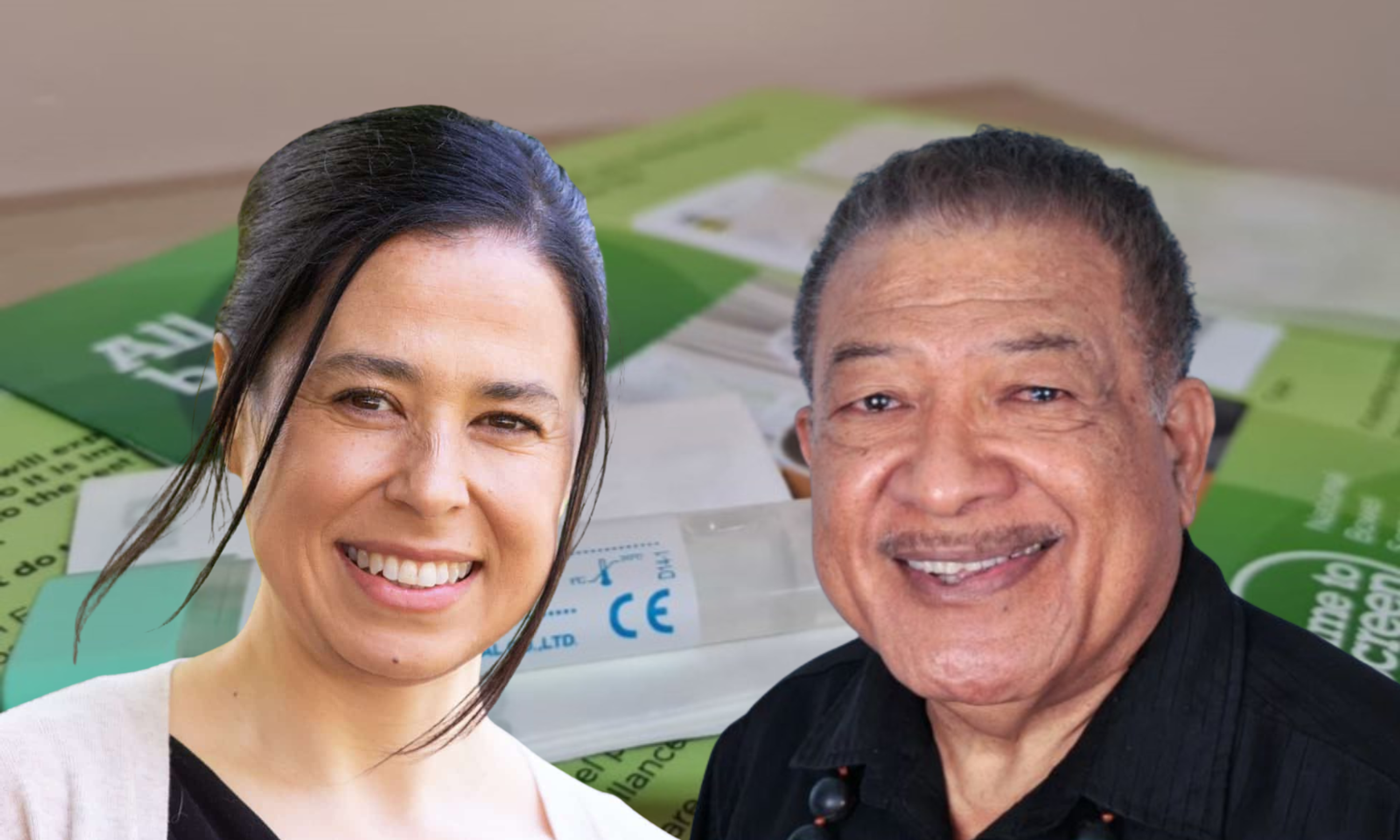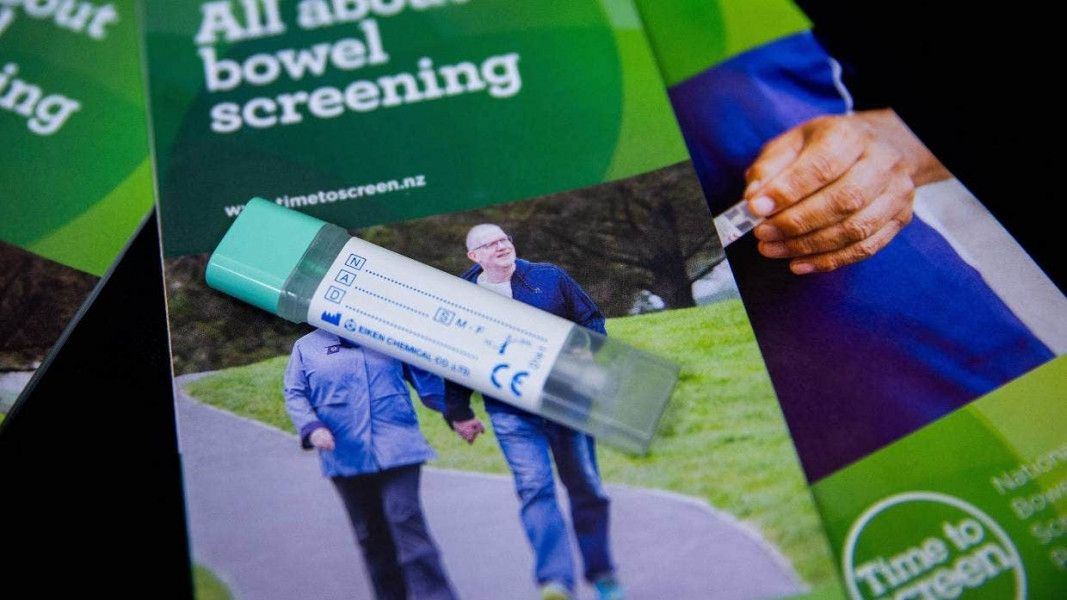

Dr Dianne Sika-Paotonu and Dr Viliami Puloka weigh the prons and cons of changes to the free bowel screening programme.
Photo/File/RNZ
Pacific health leaders criticise rollback of bowel screening age
Health experts say inequities will persist, despite the Government’s decision to lower the national screening age.


Pacific pride on the big stage: ‘Chief of War’ wins Best Ensemble at the Spirit Awards




Pacific pride on the big stage: ‘Chief of War’ wins Best Ensemble at the Spirit Awards


Pacific and Māori health advocates are raising concerns over changes to bowel cancer screening after the Government lowered the free screening age from 60 to 58 in parts of the country.
The move follows the scrapping of a pilot programme that allowed Māori and Pacific people to screen from age 50. Prime Minister Christopher Luxon says it is the first step towards aligning with Australia’s programme, which begins at 45.
Bowel cancer often has no symptoms but can be detected early with a simple home stool test.
Health New Zealand Te Whatu Ora estimates the age change will make at least 122,000 more people eligible in the first year, preventing around 161 cases and 117 deaths among Māori and Pacific peoples over 25 years.
Dr Viliami Puloka, a research fellow at the University of Otago, says the changes do not go far enough.
“It’s like we are taking baby steps in the right direction while cancer is taking a giant step in killing the people, especially Pacific and Māori.”
Puloka notes that only around 35 per cent of Tongans participate in bowel screening, compared with 58 per cent of the overall population, and warns that ending the younger-age pilot risks delayed detection.
“A lot more Pacific and Māori people will miss the chance to start treatment early. Treatment is only as good as when it starts early. If you start late, the outcome is not as good.”
Dr Dianne Sika-Paotonu, Deputy Vice-Chancellor Pacific at the University of Otago, says lowering the age is positive but insufficient.

Bowel screening kits should automatically be mailed to people once they reach the eligible age. Photo/Ministry for Pacific Peoples
“Pacific peoples and Māori remain disproportionately impacted and affected by cancer. For our communities, cancers can occur at younger ages, be diagnosed at more advanced stages, and people can die sooner compared with other New Zealanders.”
She adds that policy must follow the evidence to prevent unnecessary illness and death.
“It’s really important to take into account the respective needs of different groups and ensure responses are appropriately targeted and tailored. Otherwise, people can end up getting sick who should not be, and in the case of bowel cancer, this means dying.”
Dr Matt Wheeler, Chair of the Royal Australasian College of Physicians’ Māori Health Committee, says bowel cancer disproportionately affects Māori and Pacific peoples at younger ages.
In a statement, he challenges the Government to be transparent: “Show its workings. Tell the country how many lives will be lost by raising the age for free bowel screening for Māori and Pacific peoples. They should disclose the amount of money saved. This will allow us to calculate the value the Government places on Māori and Pasifika lives.”
Watch Viliami Puloka's full interview below.
Missing the cultural connection
Puloka says the decision reinforces a sense of marginalisation within Pacific communities, where many feel like an afterthought.
“For far too long we feel like we are just an appendix, just an add-on. Health is the most precious treasure, a taonga. Without people, without their health, nothing else matters. We should feel that we are part of this national treasure and contribute to building this country.”
He stresses that cultural barriers must be addressed to improve screening uptake.
“Services are good and available, but they’re not accessible. People need to feel valued — that their faith, culture and perspective are recognised. Pacific peoples represent more than 20 different cultures with hundreds of languages. Unless programmes are designed with Pacific people in mind, uptake will continue to lag.”
Health Minister Simeon Brown says the screening age will drop for the rest of the North Island in March 2026, with significant investment planned to boost participation, including allowing kit drop-offs at laboratories.